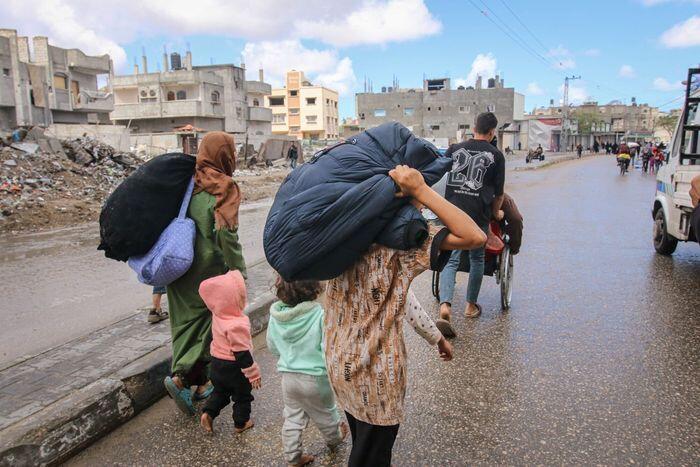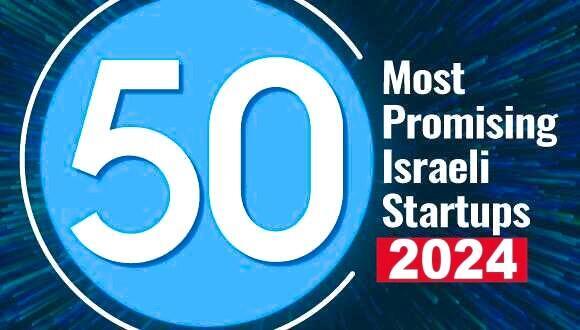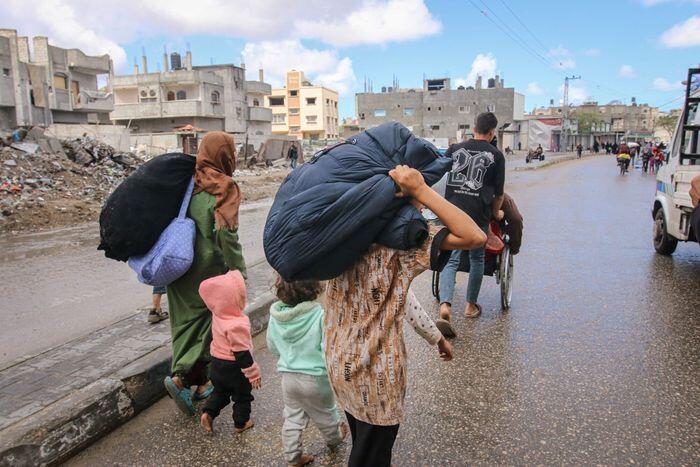
Israel's Rafah operation an additional blow to Egypt's hopes of economic recovery
Israel's Rafah operation an additional blow to Egypt's hopes of economic recovery
The Egyptian stock market has been suffering from instability for the past week due to the fear of an escalation in the war near its border with Gaza. In addition, inflation continues to rise, tourists are staying away and the Suez Canal is losing business. The operation in Rafah will only worsen the plight of the Egyptian economy
The beginning of the evacuation of the residents and displaced population from east Rafah, which began on Monday morning, on the orders of the IDF spokesman, is the beginning of the scenario that Egypt feared. Although Israel announced that it had coordinated the move with Egypt, that it was an operation limited in scope, and that measures would be taken to prevent movement towards the Egyptian border, Cairo is having difficulty hiding the fears that had been harbored among the Egyptian elite since the beginning of the war that the fire would reach Rafah, i.e. the Egypt-Gaza border.
It is important to note that since the fighting between Israel and Hamas began in October, the impression one gets is that although Egypt voices sharp public criticism of Israel, beneath the surface the two countries are coordinating, certainly at the military level.
Huge losses even before the action in Rafah
During the last week, the Egyptian stock market has been suffering from instability, and according to traders in Cairo, this is due to the fear of a military escalation at the country's border.
Indeed, the traders' concerns have basis. Egypt so far is one of the biggest economic losers from the war in Gaza and the Rafah operation may increase its losses even more. The government of President Abdel Fattah El-Sisi is well aware of the unrest that exists in large parts of the Egyptian public, against the background of the economic situation which is reflected in inflation of nearly 37% and a decrease in purchasing power. It is not for nothing that the Egyptian regime and its security forces make a great effort to suppress demonstrations in support of the Palestinians, which is why dozens of arrests have been made in this context, since the authorities understand very well that this mix of economic frustration together with pro-Palestinian sentiment is a recipe for increasing internal instability.
The war in Gaza has increased the plight of the Egyptian economy, which had previously suffered heavy blows during the pandemic period and as a result of the war in Ukraine. Since October 7, two prominent industries that generate foreign exchange income for Egypt have been the most prominent victims - tourism and the Suez Canal. If the Egyptians thought at the end of the week that they would be able to bring the parties to a ceasefire and improve the recovery prospects of these two significant economic sectors, then their hopes have been dashed.
If the war does not stop, and takes place in the Rafah area, near the Sinai, Egypt's tourism revenues this year are expected to experience a decrease of between 10% and 30% compared to last year, which may reduce its foreign exchange reserves as well as harm its growth possibilities. Last year the tourism sector brought in nearly $14 billion - more than any single economic sector in the Egyptian economy.
Egypt is also in trouble regarding the Suez Canal, which last year recorded record income of $9.4 billion. Since November, during which the pro-Iranian Houthi rebels in Yemen began attacks on vessels in the Red Sea and the Arabian Sea, there has been a significant decrease in shipping traffic in the Suez Canal. It took Egypt a while to admit that they are indeed affected by the attacks of the Houthis. A few days ago, the Egyptian authorities admitted that since the beginning of the year, Egypt has experienced a 50% decrease in revenues from the Suez Canal. Judging by past experience and the tendency of the Egyptians to suppress reality, it is likely that the damage to canal revenues is even deeper.
A ceasefire agreement could have created the conditions for the gradual return of shipping traffic, but the Houthis have already announced that an operation in Rafah will lead to an escalation in their attacks that will also reach the Mediterranean Sea, which could also increase the damage to Egypt's economy.
Hamas will try to drive a wedge between Israel and Egypt
The Egyptian effort last week to lead to a cease-fire deal and the release of hostages between Israel and Hamas stemmed, among other things, from the desire to remove as much as possible the possibility of Israeli action in Rafah, and this out of a distinct internal Egyptian interest. Although Egypt understands that the administration in Washington will exert pressure on Israel to carry out as limited an operation as possible in Rafah, in Cairo they fear a loss of control. Mainly, the Egyptians fear that the Hamas leadership in Gaza will try to manipulate many thousands of Rafah residents not to obey the IDF to move north, but to move in the opposite direction to the shared border with the aim of crossing it towards Sinai, in order to increase the pressure on the Egyptian authorities and increase the Egyptian-Israeli tension. As far as the Egyptians are concerned, an attempt to move into Sinai is a red line they will find difficult to accept, and therefore it may lead to the deepest crisis in relations with Israel since the signing of the peace agreements between the two countries.
The Egyptians were prepared ahead of time for this nightmare scenario for them. In recent months, they have invested a lot of effort and resources in efforts to strengthen the border fence between the Gaza Strip and Sinai. According to unofficial reports, the Egyptian security forces will also increase their presence in Sinai in order to deal with a possible influx of Palestinians.
During the last few months, since the war began, there have been attempts by international parties to probe with the Egyptians the possibility of a certain opening of the border with Gaza should there be fighting in Rafah, even if temporarily. The Egyptians completely rejected all the offers even when billions of dollars were offered to them. The fear of the formation of refugee camps in Sinai territory was greater than any economic incentive offered to Egypt.
The authorities in Cairo have many and varied reasons for denying the entry of Palestinians from Gaza into their territory. They include political, security and economic reasons. Also, the Egyptians claim that they are already dealing with a problem of about 600,000 refugees within the state, mainly Sudanese fleeing the civil war in their country. Due to the limited economic resources at Egypt's disposal, dealing with thousands more refugees from Gaza is not possible, Cairo explains.
According to Egyptian sources, so far since October, thousands of wounded people from Gaza and their families have entered the country's territory and the country's meager resources are straining the Egyptian coffers.
If Egypt's troubles stemming from the war in Gaza are not enough, then it is facing a problem with a lack of energy for the upcoming summer season. Egyptian gas production is on the decline and according to sources at the Egyptian Oil Ministry, gas production from the huge Zohr field, in the Mediterranean, is currently at its lowest level since 2017.
Egypt's mainstay in terms of energy inputs is Israel, which has increased the export of natural gas to Egypt in recent months - another aspect of the close relations between the leaders of the two countries. However, towards the summer, the Egyptians, who wish to reduce as much as possible the frequent power outages that happened last year, are already preparing to import gas from other sources. This import will further burden the depleted Egyptian coffers and fighting in Rafah will not help Egypt to convince the international business community that this is the time to direct more resources to its economy.
The writer is the Head of Operations at Concord MENA.














